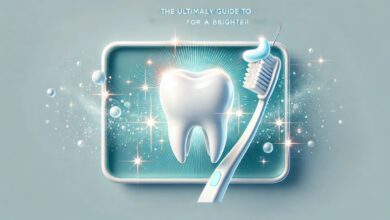The Ultimate Guide to Traditional Chinese Medicine Near Me: Finding the Best TCM Practitioners and Clinics

Introduction
Traditional Chinese Medicine (TCM) is an ancient healing practice that has been used for thousands of years to promote balance and well-being. If you have been searching for “traditional Chinese medicine near me,” you are likely looking for natural and holistic approaches to health. In this comprehensive guide, we will explore what TCM is, how it works, and how to find a reputable TCM practitioner near you.
What is Traditional Chinese Medicine (TCM)?

Traditional Chinese Medicine is a holistic healthcare system that originated over 2,500 years ago. It is based on the principles of balancing the body’s energy, or Qi (Chi), to maintain health and prevent diseases. Unlike Western medicine, which often focuses on treating symptoms, TCM aims to address the root causes of illnesses.
TCM practitioners use various diagnostic techniques, including pulse reading, tongue diagnosis, and observation of physical symptoms, to assess a person’s overall health. They then develop a customized treatment plan that may include acupuncture, herbal medicine, dietary recommendations, and therapeutic exercises like Tai Chi or Qigong.
Core Principles of TCM
- Yin and Yang Balance – TCM believes in the harmony of opposing forces, where a balance between Yin (passive energy) and Yang (active energy) is essential for health.
- The Five Elements Theory – Wood, Fire, Earth, Metal, and Water influence bodily functions and relate to different organs, emotions, and environmental factors.
- Qi and Blood Circulation – Unobstructed energy flow is essential for good health, and blockages can lead to illness.
- Zang-Fu Organ Theory – The body’s organs work together as an interconnected system, influencing each other’s functions.
Popular Treatments in Traditional Chinese Medicine
If you’re searching for “traditional Chinese medicine near me,” it’s essential to understand the treatments available. Here are some of the most common therapies:
Acupuncture
Acupuncture involves inserting thin needles into specific points on the body to stimulate energy flow and relieve pain. It is widely used for chronic pain, stress, and digestive issues. Scientific research has shown that acupuncture can help with migraines, arthritis, and even mental health conditions like anxiety and depression.
Herbal Medicine
Chinese herbs, such as ginseng, ginger, and licorice root, are combined into formulas tailored to individual health needs. These herbs help with immunity, digestion, and emotional well-being. Unlike pharmaceutical drugs, Chinese herbal medicine is designed to work synergistically with the body, enhancing its natural healing capabilities.
Cupping Therapy
This technique uses heated cups placed on the skin to improve circulation, reduce muscle tension, and detoxify the body. Cupping has gained popularity among athletes for its ability to speed up recovery from injuries and reduce muscle soreness.
Moxibustion
Moxibustion involves burning dried mugwort (moxa) near acupuncture points to stimulate healing and improve circulation. This practice is often used to treat conditions such as arthritis, menstrual pain, and digestive disorders.
Tui Na Massage
Tui Na is a therapeutic massage technique that improves circulation, relieves pain, and promotes relaxation. Unlike Western massage techniques, Tui Na focuses on specific acupressure points and meridians to rebalance the body’s energy.
Dietary Therapy
TCM emphasizes the importance of food as medicine. Eating based on your body’s constitution can help maintain balance and prevent illness. Certain foods are believed to have warming or cooling properties, which can influence digestion, immunity, and overall health.
How to Find Traditional Chinese Medicine Near Me

If you are searching for “traditional Chinese medicine near me,” consider the following tips:
Search Online Directories
Websites like Healthgrades, Yelp, and Zocdoc provide listings of certified TCM practitioners with patient reviews. Be sure to read customer feedback and look for practitioners with strong reputations.
Check Professional Associations
Organizations like the National Certification Commission for Acupuncture and Oriental Medicine (NCCAOM) provide directories of licensed practitioners. Membership in these organizations ensures that a practitioner meets professional standards.
Visit Local Wellness Centers
Many holistic health centers and spas offer acupuncture, herbal therapy, and other TCM treatments. Visiting a center in person allows you to ask questions and get a feel for the environment.
Ask for Referrals
Consult friends, family, or your primary care physician for recommendations on reputable TCM practitioners. Word-of-mouth referrals can be valuable when choosing a trusted provider.
What to Expect During a TCM Consultation
Health Assessment
The practitioner will ask about your symptoms, lifestyle, and medical history. They may also inquire about emotional well-being, digestion, and sleep patterns to gain a complete picture of your health.
Pulse and Tongue Diagnosis
The pulse and tongue provide insight into the body’s internal health. The practitioner will check pulse strength, rhythm, and quality, as well as examine the color, shape, and coating of the tongue.
Treatment Plan
The practitioner will recommend a personalized approach, which may include acupuncture, herbal remedies, or lifestyle changes. You may also receive dietary recommendations or exercises like Tai Chi to enhance treatment effectiveness.
Benefits of Traditional Chinese Medicine

- Holistic Healing: TCM treats the root cause, not just symptoms, ensuring long-term wellness.
- Natural Remedies: Herbs and acupuncture promote healing without synthetic drugs, reducing the risk of side effects.
- Stress Reduction: TCM techniques help manage anxiety and emotional well-being through relaxation and energy balance.
- Improved Digestion: Many treatments aid in gut health and metabolism, supporting overall vitality.
- Pain Relief: Acupuncture and cupping therapy alleviate chronic pain conditions, making TCM an effective alternative to pain medications.
Frequently Asked Questions (FAQs)
Is Traditional Chinese Medicine Safe?
Yes, when performed by a qualified practitioner, TCM is generally safe and effective. However, it’s important to ensure that herbal remedies do not interfere with existing medications.
How Many Sessions Will I Need?
The number of sessions depends on the individual condition. Some see improvement after one session, while chronic issues may require ongoing treatment.
Does Insurance Cover TCM?
Many insurance plans cover acupuncture, but coverage for herbal medicine and other TCM treatments varies. Check with your provider to determine what is included in your plan.
Can TCM Be Used Alongside Western Medicine?
Yes, TCM can complement Western medical treatments for a holistic approach to health. Many patients use acupuncture and herbal medicine alongside conventional treatments for better results.
What Conditions Can TCM Treat?
TCM can help with pain management, digestive disorders, stress relief, fertility issues, skin conditions, and more. It is often used as a preventive measure to maintain overall well-being.
How Do I Find the Best TCM Practitioner Near Me?
Look for practitioners who are licensed, have positive reviews, and offer personalized treatment plans. Experience and credentials are also important factors when choosing a provider.
Conclusion
Finding “traditional Chinese medicine near me” can open the door to natural healing and wellness. Whether you are looking for acupuncture, herbal remedies, or dietary guidance, TCM offers a time-tested approach to restoring balance in the body. With the right practitioner, you can experience the profound benefits of holistic healing. Take the first step today by exploring the TCM options in your area and embracing the wisdom of this ancient practice.
FOR MORE VISIT Dailynewsbizz.com




